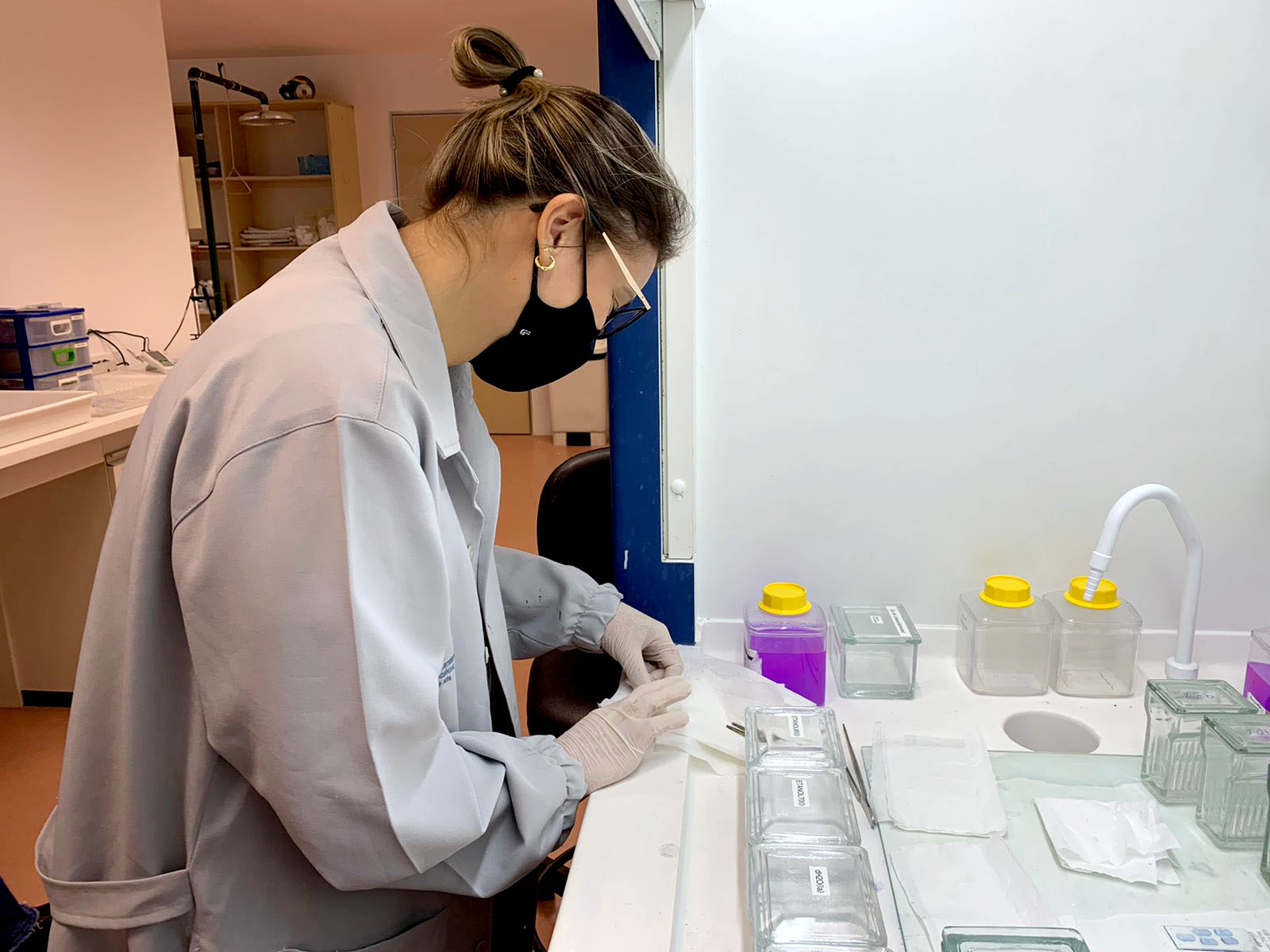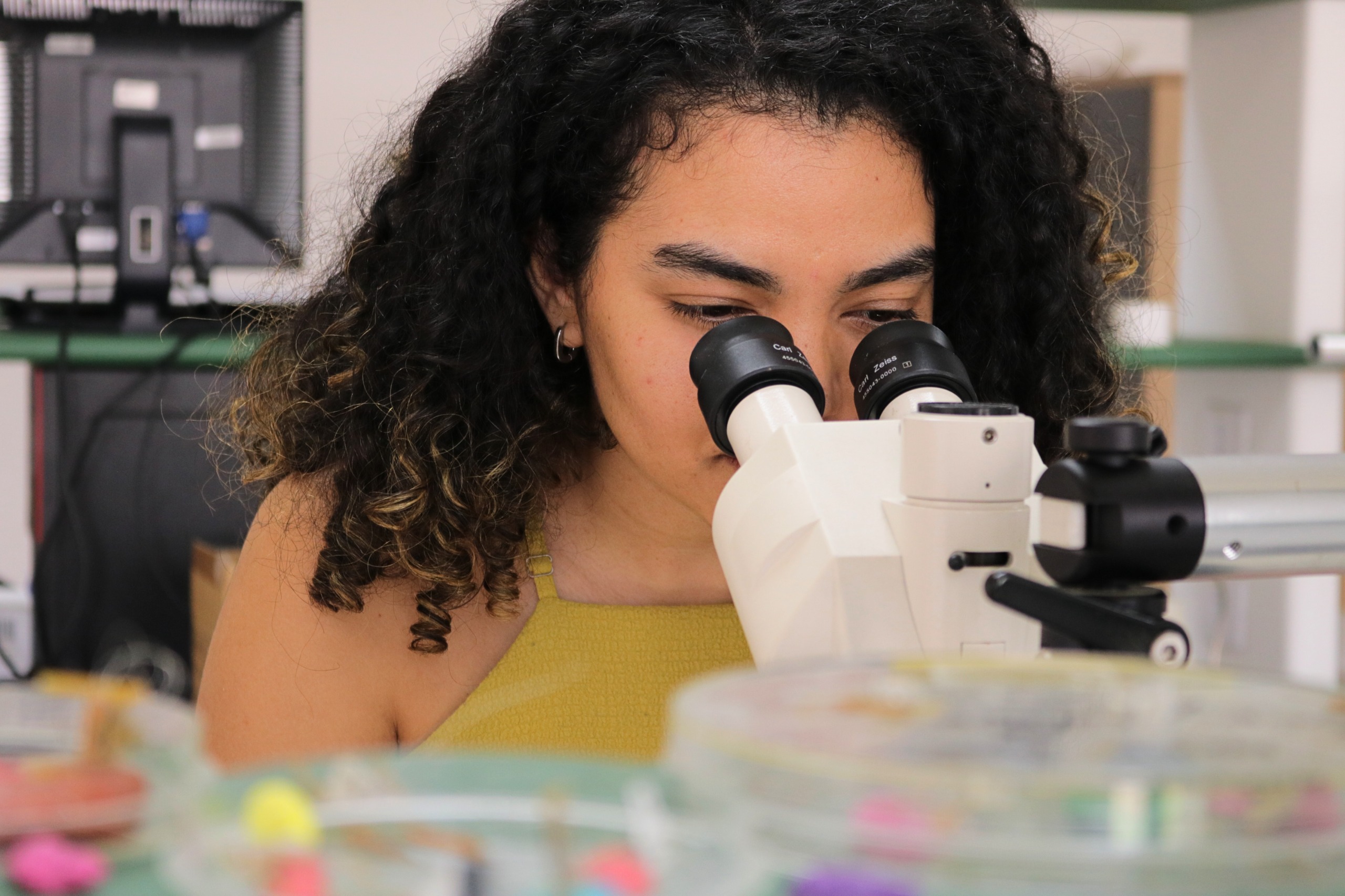Approximately 48 hours after the confirmation of the first case of covid-19 in Brazil in early 2020, a black scientist from the Northeast broke a record that has only been equaled by the Pasteur Institute, in France. Jaqueline Góes de Jesus, PhD in Human and Experimental Pathology, was part of a team of researchers that mapped the first genomes of the new coronavirus circulating in the country at the time. The feat, which far surpassed the world average of 15 days for this type of mapping, brought her international fame, and Jaqueline even got her own version of the Barbie doll. At the same time that she personifies the power of Brazilian women in science, Jaqueline also exemplifies the disparities in opportunities, projection, salaries and stereotypes experienced daily by women and girls who seek personal and professional fulfillment in scientific production.
This Friday, February 11, is the International Day of Women and Girls in Science, a date defined by the United Nations (UN) in 2015 to bring international attention to the issue. According to the Brazilian Institute of Geography and Statistics (IBGE) in the Women in the Labor Market Survey, base year 2018 (the most recent), the average income of a male science professional and intellectual in Brazil, at the time, was of R$ 5,890.00 against R$ 3,819.00 for the same female worker class.
“To do science in Brazil, we have to work four times harder. I had no scientific references in my childhood. And I never thought that, by graduating in biomedicine, I could be a scientist. This is very serious, because we don't give people opportunities to be what they really want. Over time, I realized that I represent other issues that go beyond science. I am a woman, from the Northeast, black and I occupy a prominent position that we rarely see in Brazil”, said Jaqueline Góes de Jesus in an interview with BBC News Brasil in September 2021.
In Macaíba, in Rio Grande do Norte, the Instituto Santos Dumont (ISD) promotes the inclusion and expansion of the participation of this public through projects developed in its units, the International Institute of Neurosciences Edmond and Lily Safra (IIN-ELS) and the Centro of Education and Research in Health Anita Garibaldi (Anita). Today, only in the Master in Neuroengineering, 17 women are enrolled. Almost the same number of men: 18. This reveals that women are conquering more and more space in areas that, until then, had a predominantly male presence. Getting in, however, is just the first challenge, as Celina Reis, child neurologist and Neuroengineer at ISD, explains.
"We ViWe have seen a very good increase in the number of women within academic spaces over the last few years. There is undoubtedly progress. However, we need to think about the things that make it difficult for women to stay in this space until its last steps. We often have to split between maternity, housework and other daily activities in addition to research”, she reports.
Prejudice Algorithms
According to the United Nations (UN), on the world stage, women are 28% of the total number of graduates in engineering and 40% in the areas of computer science and informatics. Female researchers also tend to have shorter and less well-paid careers, which is already the case in Brazil. UN Secretary-General Antonio Guterres suggests policies that fill classrooms with girls studying technology, physics, engineering and math. Furthermore, he calls for measures to address opportunities for women to grow and lead in laboratories, research institutions and universities.
A Biomedical Engineer from the Federal University of Pará (UFPA) and a Master's student in Neuroengineering from the Santos Dumont Institute, Tainá Rêgo says that the experience in courses in the Exact Sciences areas is still predominantly male, and the students often feel the difference in the treatment and attention given to its production. “That's why creating events, talks and conversations around this topic was so important to me and my peers when we were in college. It was as if we were showing each other that we were there, sharing that space and seeking to do science despite the fact that space often does not seem to be made for us. It is very important to create support networks, because this is a reality in the area of Exact Sciences”, he says.
Even in areas where the presence of women is predominant or equivalent to that of men, however, as is the case of Psychology, there are barriers to be faced in relation to the erasure of female scientific production, as highlighted by the psychologist and Master's student in Neuroengineering, Sayonara Pereira. “If you walk into a Psychology room, you often see a mostly female class. However, when you hear about the field of Psychology, the references that come to mind are generally men: Freud, Lacan... when the reality is that there are many extremely relevant researchers who are erased or forgotten”, he reports.
To show those who pass through the halls of the institution where she studies the relevance of female scientific production, Sayonara and her other colleagues pasted posters in front of each of the Institute's laboratories that present the story of a female researcher and her contribution in that area. “This needs to be shown, because women are already occupying these spaces, they have been producing for a long time, but their work is often ignored”, he adds.
UN Secretary-General Antonio Gugterres wants more determination to end discrimination and stereotypes about women in science and more rigorous efforts to expand opportunities for those living in minority communities, especially in the field of artificial intelligence. It is estimated that this particular area absorbs 22% of all professionals. For Guterres, there is a direct connection between the low levels of women working in artificial intelligence and what he calls “absurd algorithms of gender bias that treat men as the standard and women as the exception”.
“Today, only one in three science and engineering researchers in the world is a woman. Structural and social barriers prevent women and girls from entering and advancing in science. The Covid-19 pandemic has further widened gender inequalities, from school closures to increased violence and a greater burden of care at home. This inequality is robbing our world of enormous talent and untapped innovation. We need women's perspectives to ensure that science and technology work for everyone,” says Antonio Guterres.
The UN emphasizes that on this International Day of Women and Girls in Science, uniting all to create an environment where women can realize their true potential and the girls of today become the leading scientists and innovation agents of tomorrow , shaping a just and sustainable future for all.
Text: Ricardo Araújo, Mariana Cec / Ascom – ISD
Photograph: Ricardo Araújo, Mariana Ceci / Ascom – ISD
Communication Office
comunicacao@isd.org.br
(84) 99416-1880
Santos Dumont Institute (ISD)
It is a Social Organization linked to the Ministry of Education (MEC) and includes the Edmond and Lily Safra International Institute of Neurosciences and the Anita Garibaldi Health Education and Research Center, both in Macaíba. ISD's mission is to promote education for life, forming citizens through integrated teaching, research and extension actions, in addition to contributing to a fairer and more humane transformation of Brazilian social reality.













